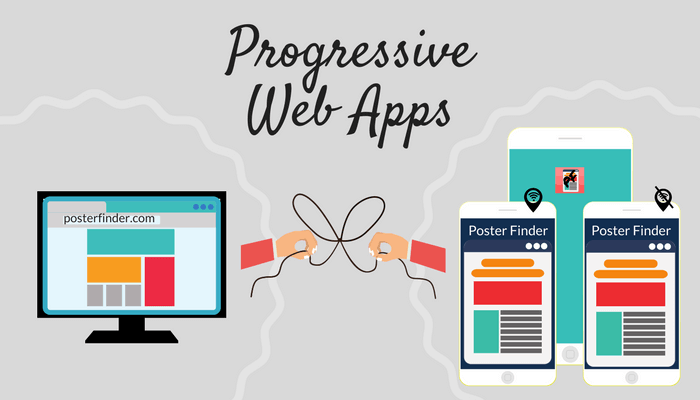Mobile web development has seen rapid advancements in recent years, and one of the most promising technologies to emerge is Progressive Web Apps (PWAs). PWAs combine the best of both web and mobile apps, offering a seamless and engaging user experience. Let’s understand the concept of PWAs, their benefits, and why they are considered the future of mobile web development.
What are Progressive Web Apps (PWAs)?
Progressive Web Apps, or PWAs, are a type of web application that leverages modern web technologies to provide a native app-like experience to users directly through their web browsers. These apps are designed to work across various platforms and devices, such as smartphones, tablets, and desktops, without the need for installation from an app store.
PWAs are characterized by the following key features:
- Progressive: PWAs are built to work smoothly on all devices, regardless of screen size or platform, ensuring a consistent user experience.
- Responsive: They adapt seamlessly to different screen sizes and orientations, making them suitable for both mobile and desktop users.
- Connectivity-independent: PWAs can function even in low or no network conditions, providing offline access to content and features.
- App-like: They offer a native app-like user experience with smooth animations, gestures, and interactions.
- Discoverable: PWAs can be discovered through search engines, making them easily accessible to users without the need for an app store.
- Installable: Users can add PWAs to their device home screens, giving them quick access and reducing the need for app downloads.
- Secure: PWAs are served over HTTPS, ensuring data security and user privacy.
- Updated Automatically: PWAs can be updated automatically, ensuring users always have access to the latest content and features.
The Benefits of PWAs
PWAs come with a wide range of benefits for both developers and users, making them a compelling choice for mobile web development:
- Improved User Engagement: PWAs offer a more engaging and immersive user experience, leading to higher user retention and longer session times.
- Cost-Effective: Developing a single PWA that works across multiple platforms and devices is more cost-effective than building separate native apps for each platform.
- Faster Loading Times: PWAs are optimized for speed, which is crucial for retaining users. They load quickly, even on slow connections, reducing bounce rates.
- Offline Access: Users can access content and features offline, ensuring they stay engaged even when they have limited or no internet connectivity.
- Increased Discoverability: PWAs can be indexed by search engines, increasing their discoverability and attracting organic traffic.
- No App Store Barriers: Users can install PWAs directly from the website, eliminating the need to go through app stores and deal with installation barriers.
- Reduced Maintenance: PWAs can be updated more easily, reducing the maintenance burden on developers and ensuring users always have the latest version.
Why PWAs are the Future of Mobile Web Development?
Several factors make PWAs the future of mobile web development:
- Cross-Platform Compatibility: PWAs are platform-agnostic and work on both Android and iOS devices, making them an ideal choice for reaching a broad audience with a single codebase.
- Improved Performance: PWAs are designed for speed and performance, which is crucial for providing a satisfying user experience.
- Lower Development and Maintenance Costs: Building and maintaining a single PWA is more cost-effective than developing separate native apps for different platforms.
- Easier Updates: Developers can update PWAs more easily, ensuring users always have access to the latest features and content.
- Enhanced User Engagement: The app-like experience offered by PWAs leads to higher user engagement and retention.
- Offline Access: PWAs allow users to access content and features even in offline or low-network conditions, making them more versatile.
Progressive Web Apps represent the future of mobile web development. They combine the best features of web and mobile apps, offering a seamless and engaging user experience while being cost-effective and accessible across different platforms. As technology continues to evolve, PWAs are poised to play a significant role in shaping the mobile web landscape, providing a compelling alternative to traditional native apps. Embracing PWAs in your development strategy can help you reach a wider audience and deliver a superior user experience in the mobile web ecosystem.

